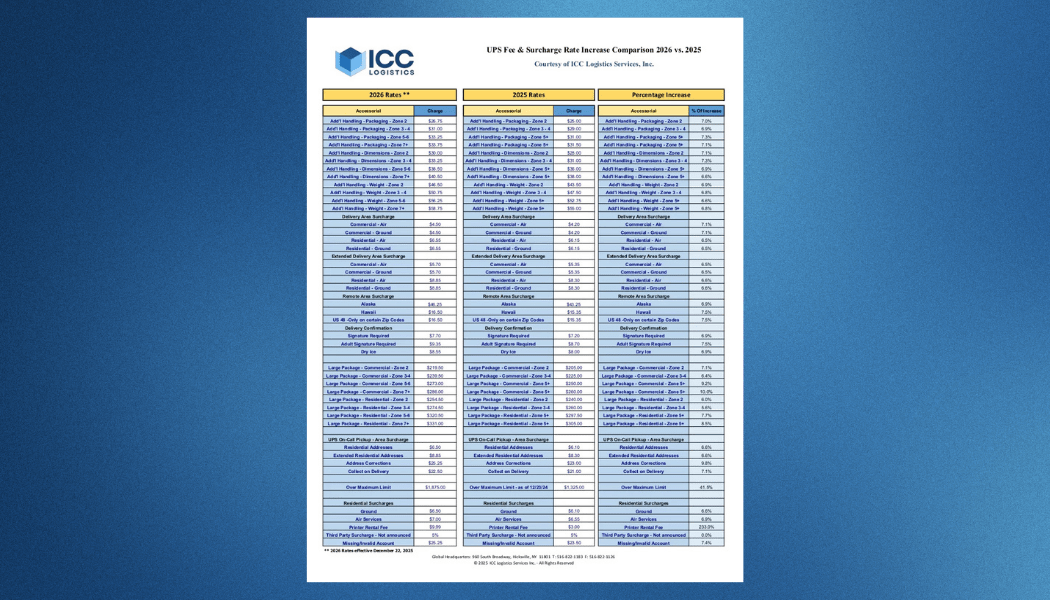So it’s a new year and many shippers have either recently entered into new strategic business partnerships with Logistics Service Providers, (LSP’s) or are planning to enter into new relationships in the coming months. Ensuring that these relationships will be successful for the long term should be the goal of every shipper as well as for their logistics partners.
While cost for shippers and profitability for the logistics partner are key factors in all of these relationships, we believe the cost and profitability factors fall further down the food chain in making the proper decision to join forces.
To start, all key stakeholders on both sides of the partnership must be involved from the beginning to the end of the qualification process to ensure there are no gaps, no misunderstandings and that the goal of complete success of the partnership will in fact be met from both sides.
This all sounds very basic and completely logical for any business partnership and it really is. However, we have experienced over the years many instances where the two sides were so eager to create a partnership they failed to take the time to fully understand if they should actually do business together in the first place. Are they “ideal” business partners or not? Many fail to see the benefits of establishing several key and basic elements to ensure success, as follows:
- Do both sides FULLY understand the intended outcome of the relationship?
We’re getting down to real basics here, but we are amazed at how many shippers fail to properly explain what they actually need from particular strategic partners. Not all service providers are created equal. Does the LSP have all of the capabilities the shipper needs to ensure a flawless integration? Does the LSP really understand what is expected of them? Can the LSP be successful and profitable in this relationship? Yes, very basic questions for sure but if you can’t get to first base in these relationships, forget about trying to get to second!
On the other side of the coin, does the LSP know what to expect from the shipper? If not how can they ensure there will be “a possibility of performance?” Remember the LSP will be expected to perform as close to 100% of whatever metrics are established between the two parties, but how can they do that if they really don’t know what to expect from the shipper?
We’ve seen dozens of these relationships fail over the years simply because the shipper could not, or would not pay their invoices in the timeframe the LSP “thought” the invoices would be paid in. It doesn’t get any more basic than that.
- Failure to document all processes
Years ago, children played a game called “telephone” where they would gather in a circle and one person would say something to the next person, that person would say it to the next person and so on. Once everyone had a chance to speak, the results typically were that the last person heard something completely different from what the first person actually said.
And believe it or not, sadly the same applies today when companies do not document all of their business processes to ensure that everyone is on the same page as to what each side is committed to doing in the relationship. “I thought you….. (fill in the blank.”) “ I was expecting you to….. (fill in the blank.”) If processes are not completely and jointly documented and signed off by both parties there is going to be a big disconnect and the partnership will surely fail.
- Failure to integrate systems
It’s one thing to document processes and ensure that everyone understands their role in these relationships, but in today’s world of connectivity, both parties must integrate their systems so that there is complete transparency.
The shipper must have full visibility into the LSP’s systems operations to know in an instant the status of their orders; where their products are at all times; how successful is the LSP in providing the services the shipper has engaged them for; and finally, what are all of the costs associated with each of the shipments to ensure the relationship is working exactly as planned.
On the other hand, the LSP must have access into the shipper’s systems operations to fully understand order cycle times; shipment weights, dimensions and special delivery instructions; expected ship and required delivery dates; and have the ability to view all return authorizations as well as any other pertinent information to ensure they are successful in meeting the shipper’s expectations.
And one final thought we cannot forget, and that is that each and every one of these strategic alliances must be handled under a formal contract between the parties which spells out all of the obligations of each party; exactly how the operation must work to be successful; who is responsible for what; what metrics will be required and documented; and finally, lay out all of the costs associated with the operation and how and when those costs must be paid.
Remember, contracts are bi-lateral agreements. As such they cannot be changed by either party without the consent of the other party. This provides protection for both sides. Obviously each side must meet their obligations for the arrangement to be completely successful. The contract can and should spell out these obligations and what happens if either or both parties do not live up to their contractual obligations. Shipper’s and LSP’s should not leave any stones unturned when entering into these agreements as they will surely come back to haunt one or both parties.



 to receive our FREE white papers:
to receive our FREE white papers: